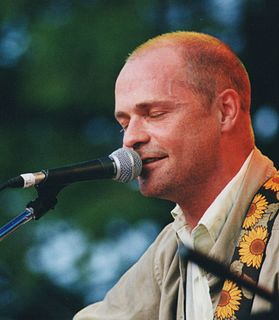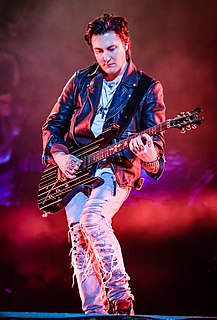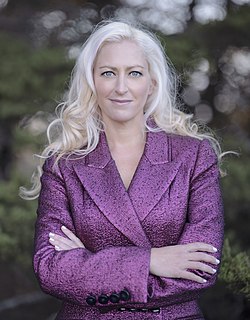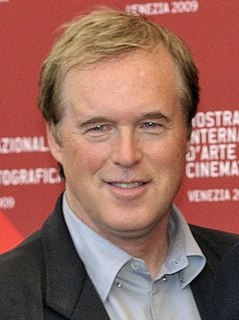A Quote by John Petrucci
I know we play a part in the story of progressive music, but for us those influences are the real fathers, the ones that we were interested in.
Quote Topics
Related Quotes
So, it's always different. Some stuff, you want to do because it's a part that you've never played. It's always for story. Sometimes there's a story that you really dig, but there's no part that you're interested in. Sometimes you read a story and you say, "I could do that. I've never done that before. I could do play that part.
No, it’s very comforting actually, to know that you’re sitting in a long legacy of actresses who’ve played the role. I’m absolutely all for absorbing all of those influences, so you understand the pedigree of the part as much as you understand the figure in history… because you are playing the part. You don’t say: “Gosh, I want to play Peter Sellers…” because you can sort of do that in your own bathroom.
There's always peripheral things that you like that you don't know, but starting with whatever his British influences are, are some of my favourite artists, and the American things are what I grew up on as well. In the end, for me, it's those foundations of the music business - those things that are a lot of the foundations of what music today is. You can hear a bit of all of those things that we talk about in almost all music today.
I listen to all those kinds of music, from classic soul to hip-hop to Brazilian music to, you know, jazz to indie to alternative... And for me, when I'm making music, it's all in my head, and all those influences in my head. So if something comes to me that's a reference from a different genre then people are used to hearing from me, I'm not afraid to go there with it.
Surveys of thousands of gamers have shown that they're more likely to play real music if they play a music videogame. So it's an interesting relationship where the games aren't replacing something we do in real life, they're serving as a springboard to a goal we might have in real life, like learning to play an instrument.
Music is a universal language insofar as you don't need to know anything else about a musician that you are playing with other than that they can play music. It doesn't matter what their music is, you can find something that you can play together, with what their culture is. The dialect part of it comes into play, but nothing like the differentiation that language sets up, for example.




































